Great victory on the diplomatic front
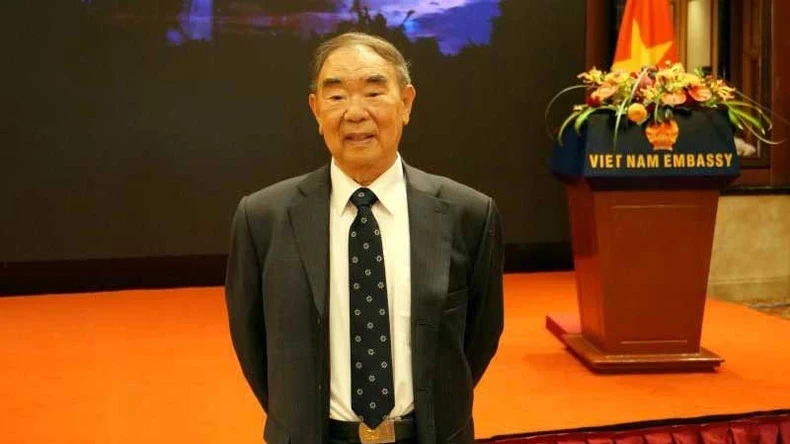
The Geneva Agreement was a great victory for Vietnam on the diplomatic front following the Dien Bien Phu Victory, a historical milestone on the path of struggle for independence, freedom, prosperity and happiness of the heroic Vietnamese country and people.
The Geneva Agreement was a continuation of the Dien Bien Phu Victory that "resounded throughout the five continents and shook the world", turning victory on the battlefield into victory at the negotiating table, directly contributing to the end of French colonial rule in Vietnam and all of Indochina.
To achieve this decisive victory, the Party, Government and people of Vietnam went through a long preparation process with methodical and effective strategies and steps, first of all, nine years of protracted resistance ended with the Dien Bien Phu campaign that completely defeated the Navarre Plan and crushed the French colonialists' plot of invasion.
This was an important premise for the parties to promote negotiations and sign the Geneva Agreement on ending the war, restoring peace in Indochina, abolishing French rule, recognizing the independence of the three countries of Vietnam, Laos and Cambodia, and officially ending French colonialism in Indochina.
The difficulties and hardships at the negotiating table are no less than those of fighting on the battlefield, with many rounds of negotiations and extremely fierce and complicated struggles, involving many parties with different policies, viewpoints and interests.
Vietnam has skillfully taken advantage of the Dien Bien Phu Victory, maintained solidarity and high determination, been both resolute in principles and flexible in measures during the negotiation process, and sought the maximum support of the international community, especially socialist countries, to achieve the highest goal of forcing France to withdraw its troops from Vietnam, ending decades of colonial rule.
During the Dien Bien Phu campaign and the negotiation and signing of the Geneva Agreement, Vietnam and China maintained extremely close cooperation, mutual assistance and solidarity, creating a common strength to defeat colonialism and imperialism, making an important mark that resonated greatly in the international arena.
The Geneva Agreement is not only of historical significance, but also of practical significance. This is an opportunity to summarize historical experiences and lessons, thereby accurately assessing the major changes in the contemporary international environment, recognizing the advantages and positives to promote; and the difficulties and challenges to overcome.
As a friendly person who has been invited to Vietnam many times to attend activities commemorating the Dien Bien Phu Victory and the Geneva Agreement, I hope that on the important anniversaries of the two countries, researchers and scholars will have many opportunities to visit and exchange, in order to enhance understanding and close ties, bring vivid practices into research works to disseminate to the public of the two countries, promote and continue the history of Vietnam-China friendship in the new era.
Professor COC NGUYEN DUONG , former Director of the Institute of World Economics and Politics, Chinese Academy of Social Sciences
Combine synergy
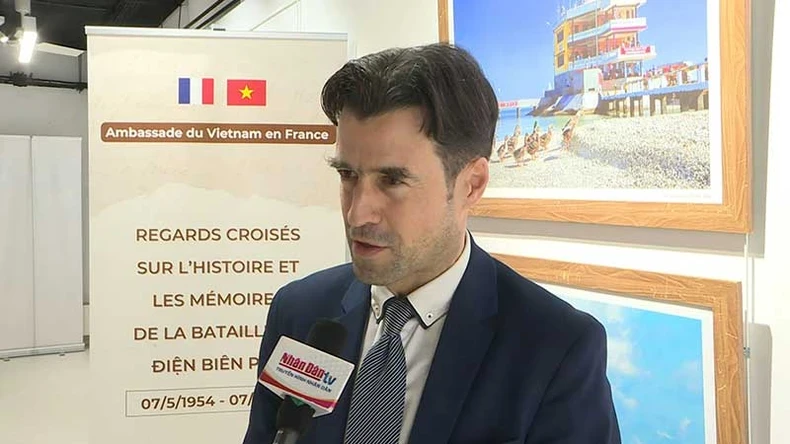
The Geneva Agreement of 1954 was not only a great victory for the Vietnamese revolution but also affirmed the position and correct diplomatic line of the Communist Party of Vietnam and President Ho Chi Minh. The Geneva Conference officially negotiated on the Indochina issue from May 8, 1954.
As a leader, President Ho Chi Minh skillfully applied the strategy of combining victory on the battlefield to create an advantage at the negotiating table. Both France and Vietnam identified Dien Bien Phu as the final battle to gain an advantage and move to negotiations.
In fact, at that time, diplomatic negotiations were what both France and Vietnam wanted. Some people in the French army and intellectuals doubted the French army's ability to win against the Viet Minh army, which had a strong fighting spirit, determined to fight and win.
At the same time, the financial burden and the anti-war sentiment of the French people became increasingly strong, so the French side also hoped for diplomatic negotiations. On May 7, 1954, the enemy stronghold at Dien Bien Phu collapsed. The very next day, negotiations opened in Geneva. This development created a strong and turning point advantage for the Vietnamese negotiating team.
Vietnam has cleverly applied the strategy of combining comprehensive strength on both the diplomatic, political and military fronts. The victories on the battlefield have helped Vietnam gain an advantage at the diplomatic negotiation table.
This is a strategy that has been summarized through many generations of Vietnamese people in the glorious history of fighting against foreign invaders, and continued to be successfully applied during the period of fighting against the US to save the country.
The signing of the Geneva Accords was an important milestone in the history of Vietnamese diplomacy. Vietnam's victory at Dien Bien Phu and the signing of the Geneva Accords had a high symbolic significance, encouraging other nations in their struggle for independence, the right to determine their own national destiny and territorial integrity.
The signing of the Agreement also foiled the plot to prolong, expand, and internationalize the war of aggression in Indochina.
Professor of Contemporary History PIERRE JOURNOUD at Paul-Valéry University Montpellier (France)
Heroic historical events of the Vietnamese people
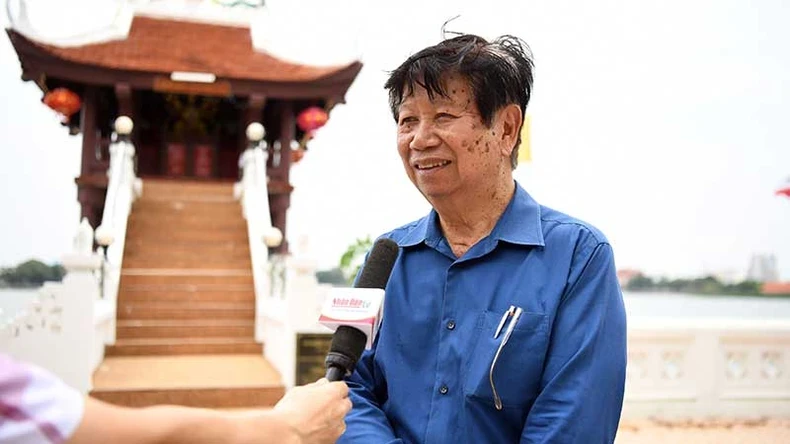
When information about the Geneva Agreement reached Thailand, our overseas Vietnamese were extremely happy, filled with joy and pride, as the country was freed from the yoke of French colonial rule.
Remembering that time when I was only 8 years old, my parents told me about the Geneva Agreement, my friends and I were very excited with the simple thought that everyone would be free to work, live and study.
When I heard my grandparents and parents talking about the Dien Bien Phu Victory and then the Geneva Accords, I went to my neighbor’s house to ask for more information about the events. Documents and books in Vietnamese were very few in the overseas Vietnamese community in the past, not as popular as they are today. People had to pass around Vietnamese books to read and listen to information about Vietnam on the radio.
Growing up, when I learned more about this historical event, as a son of the Vietnamese people, I felt even more proud when I saw the Thai people expressing their admiration for Vietnam, a small country but able to defeat the French colonialists to escape slavery.
Every year, on the occasion of the anniversary of the Dien Bien Phu Victory and the Geneva Agreement, our overseas Vietnamese in Northeastern Thailand sit together, talk, and tell each other about the heroic historical events of the nation.
When the Geneva Agreement was signed, our overseas Vietnamese were respected even more by the local people. They also expressed their admiration for Vietnam, a small country that was able to defeat the French colonialists and force France to sign the Geneva Agreement, recognizing Vietnam's basic rights.
The signing of the Geneva Agreement was a great victory for our nation and also a historic milestone in our country's diplomacy. Currently, the Party and State are continuing to promote the achievements of that victory in the cause of building an increasingly prosperous country.
Mr. CAO TAT MINH , former Chairman of the Overseas Vietnamese Association of Khon Kaen province, Northeastern Thailand
Source: https://baohaiduong.vn/cuoc-dau-tri-quyet-liet-tren-ban-dam-phan-387510.html



![[Photo] Prime Minister Pham Minh Chinh chairs meeting to remove difficulties for projects](https://vstatic.vietnam.vn/vietnam/resource/IMAGE/2025/3/30/7d354a396d4e4699adc2ccc0d44fbd4f)



![[Photo] Ministry of Defense sees off relief forces to the airport to Myanmar for mission](https://vstatic.vietnam.vn/vietnam/resource/IMAGE/2025/3/30/245629fab9d644fd909ecd67f1749123)

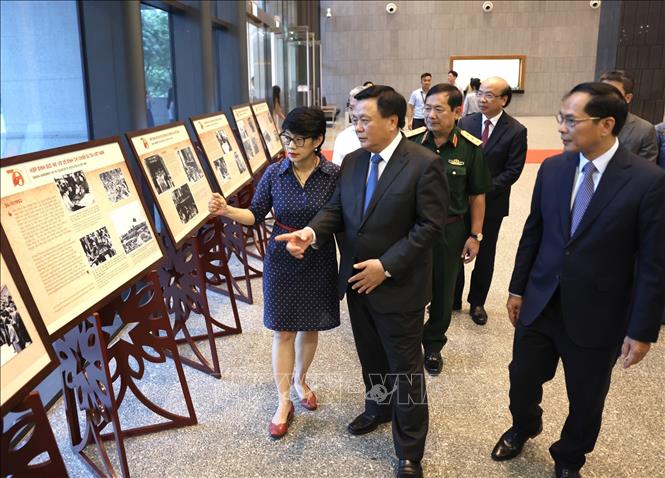
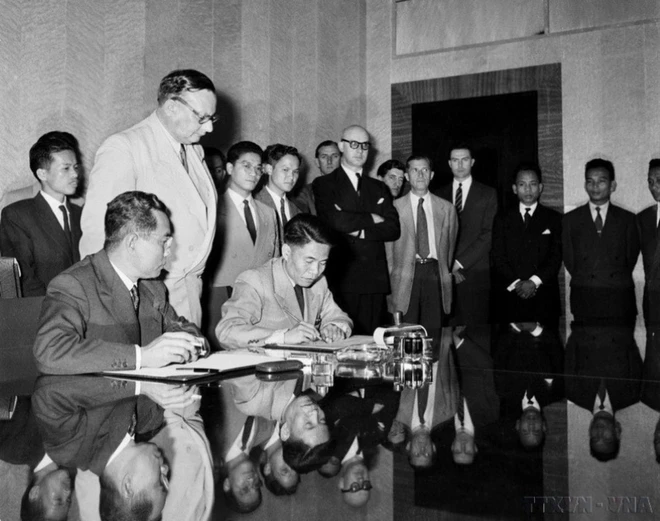
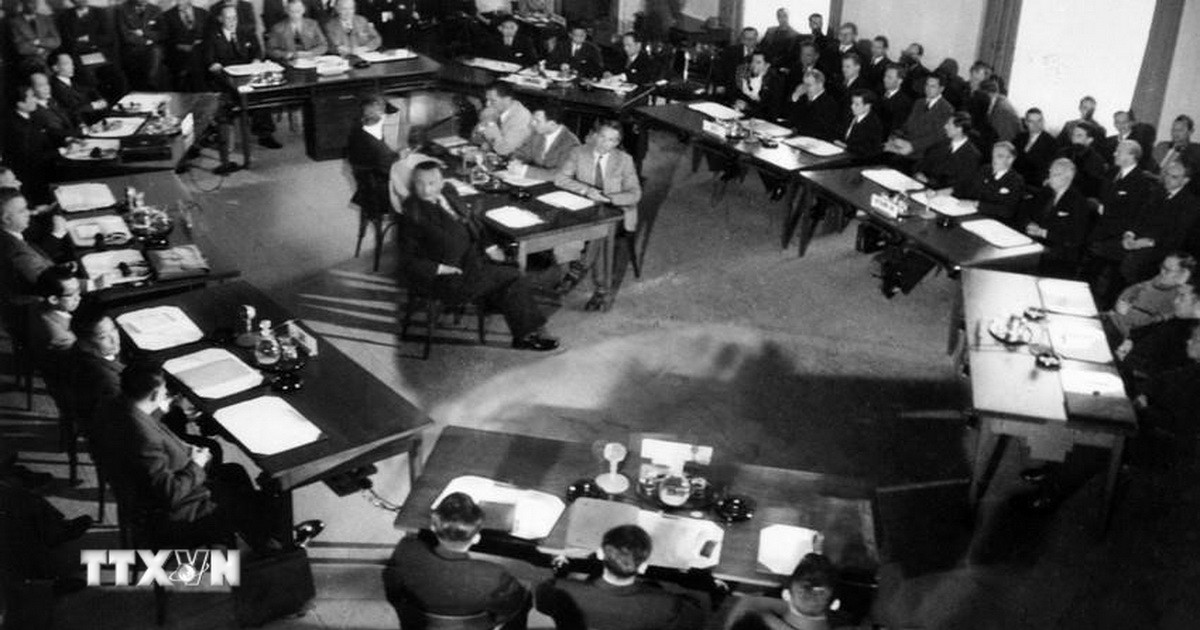
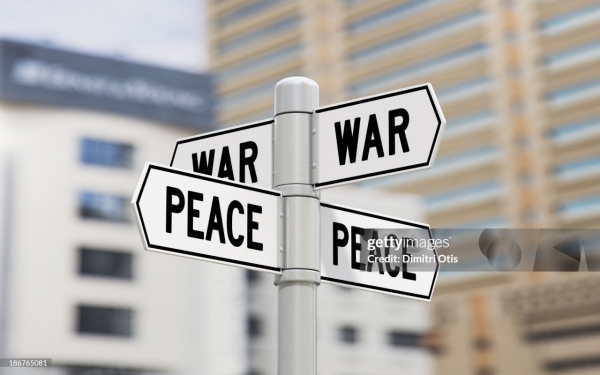

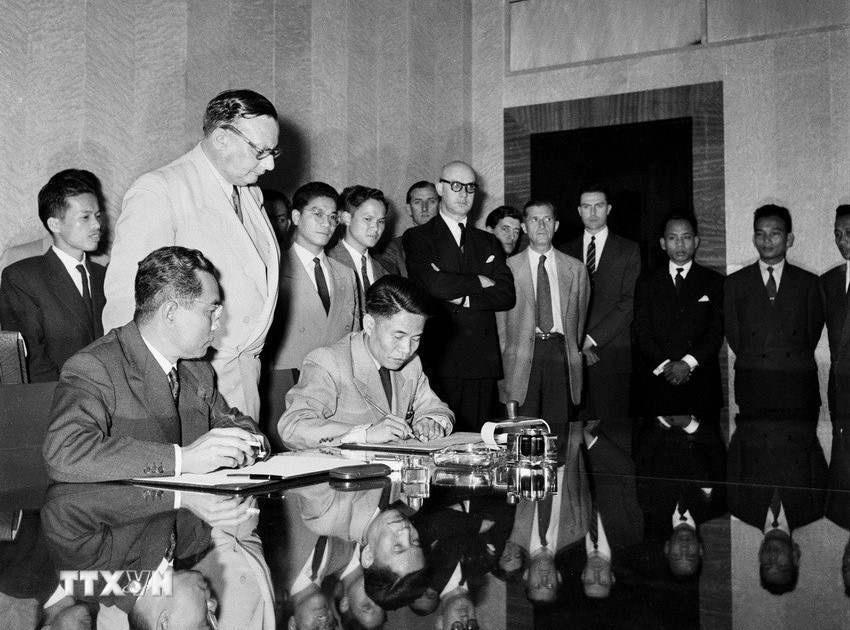


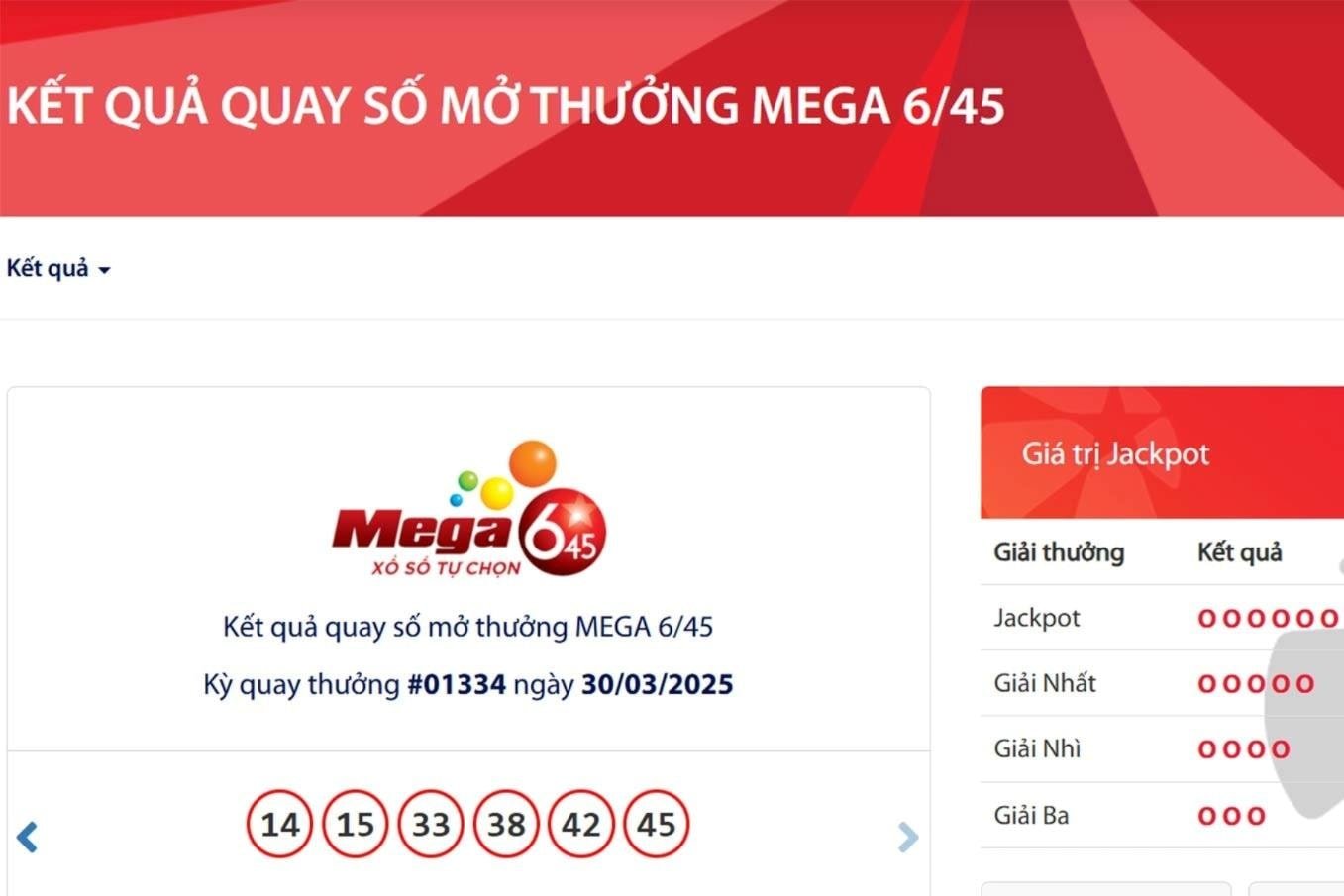
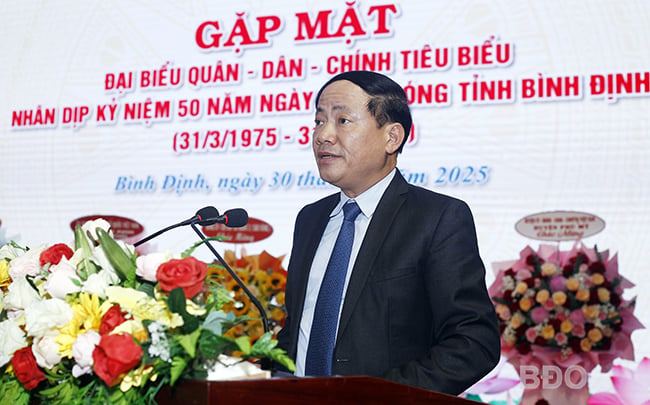

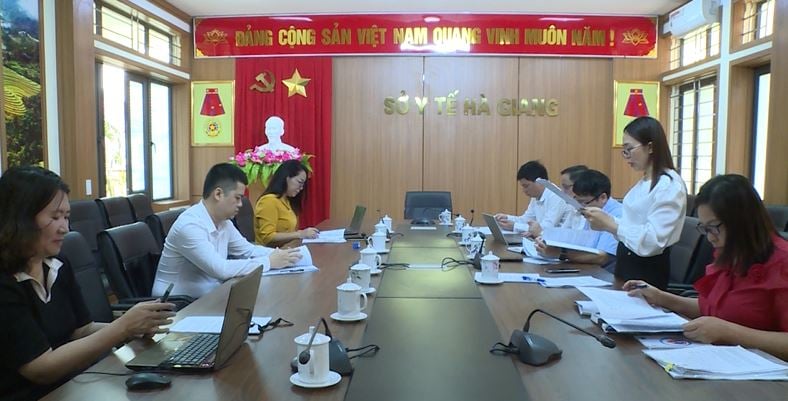


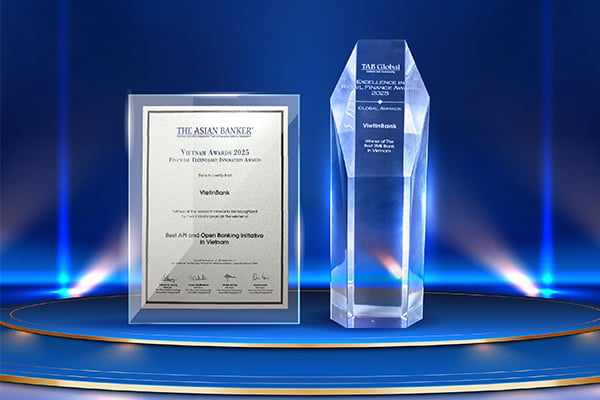
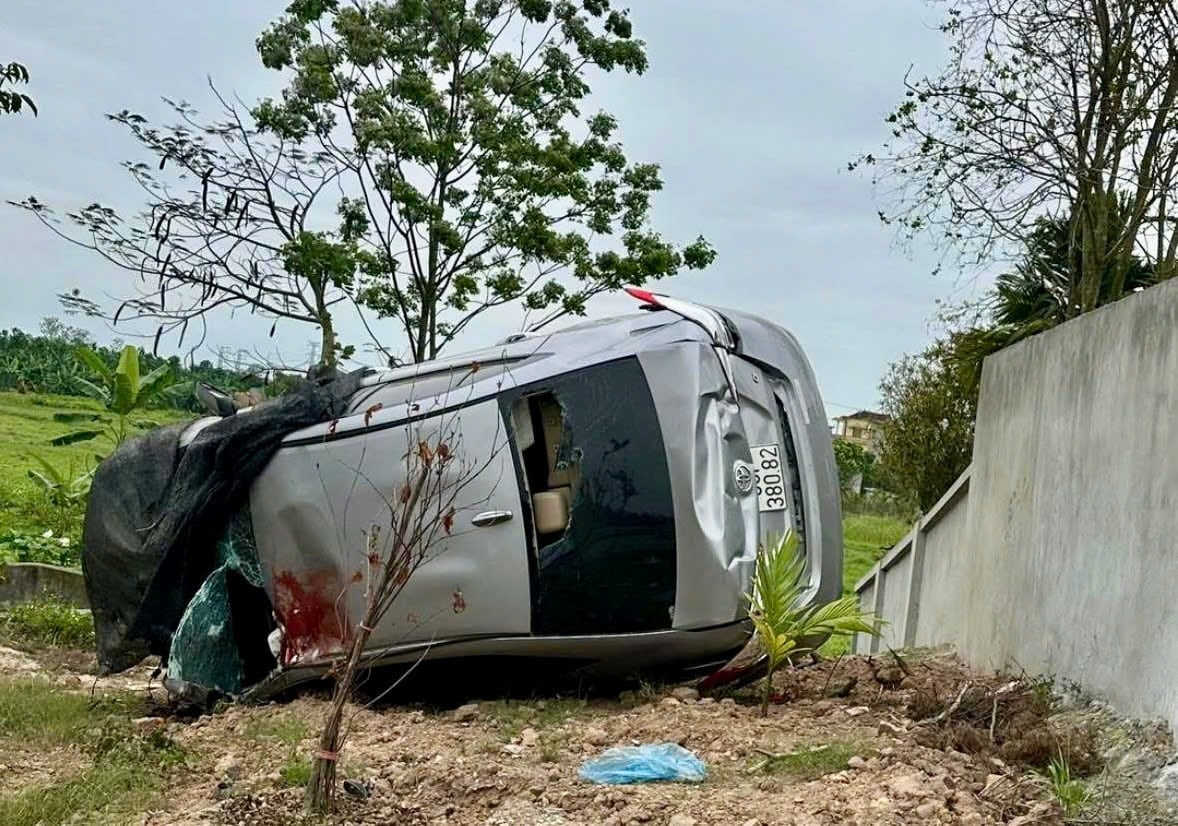
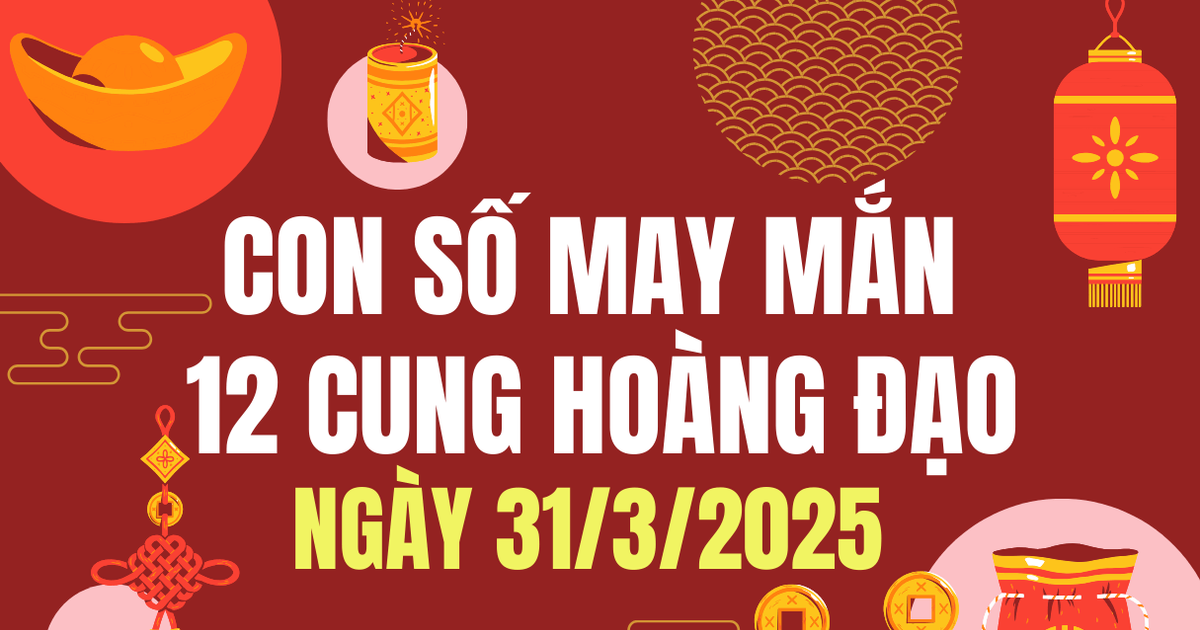

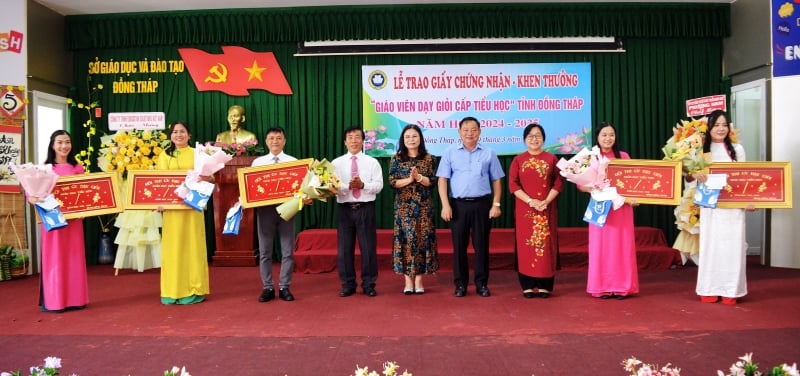

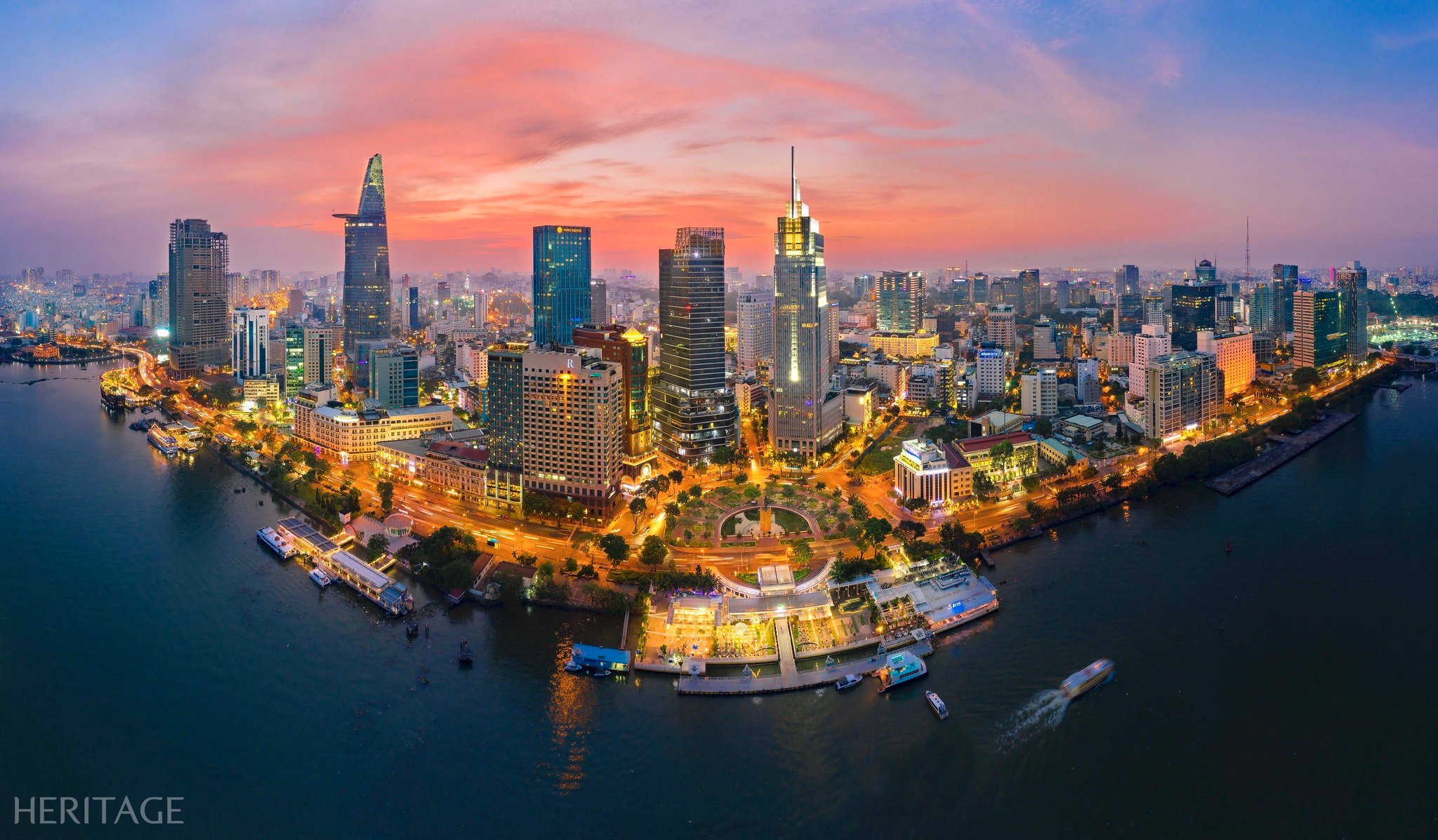

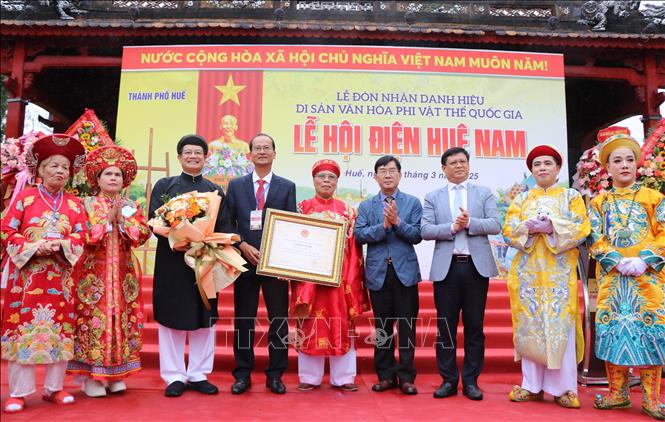

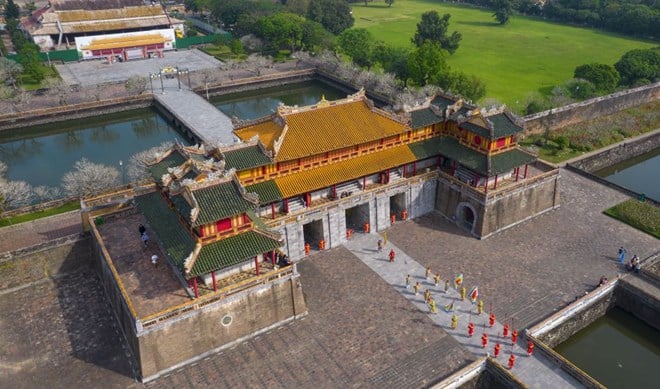

















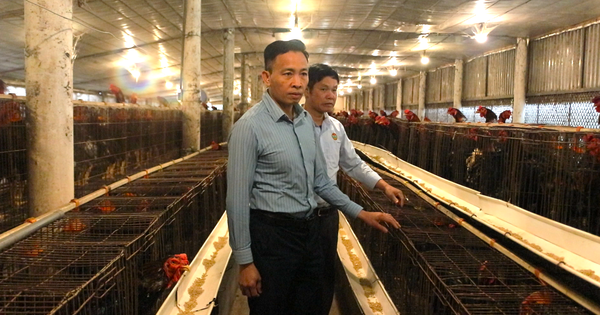









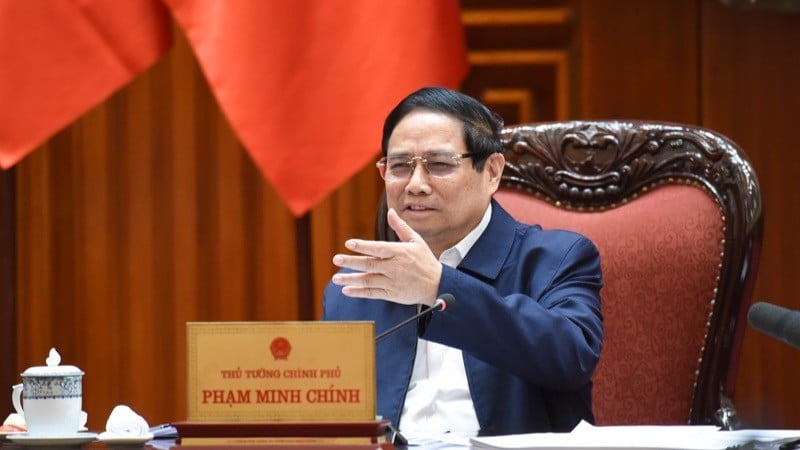

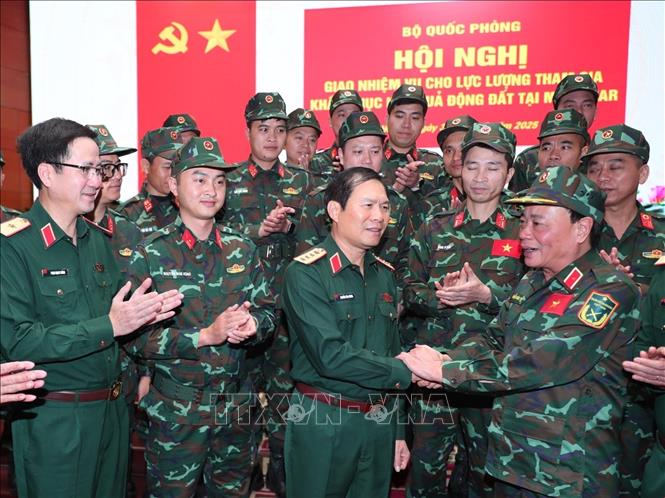

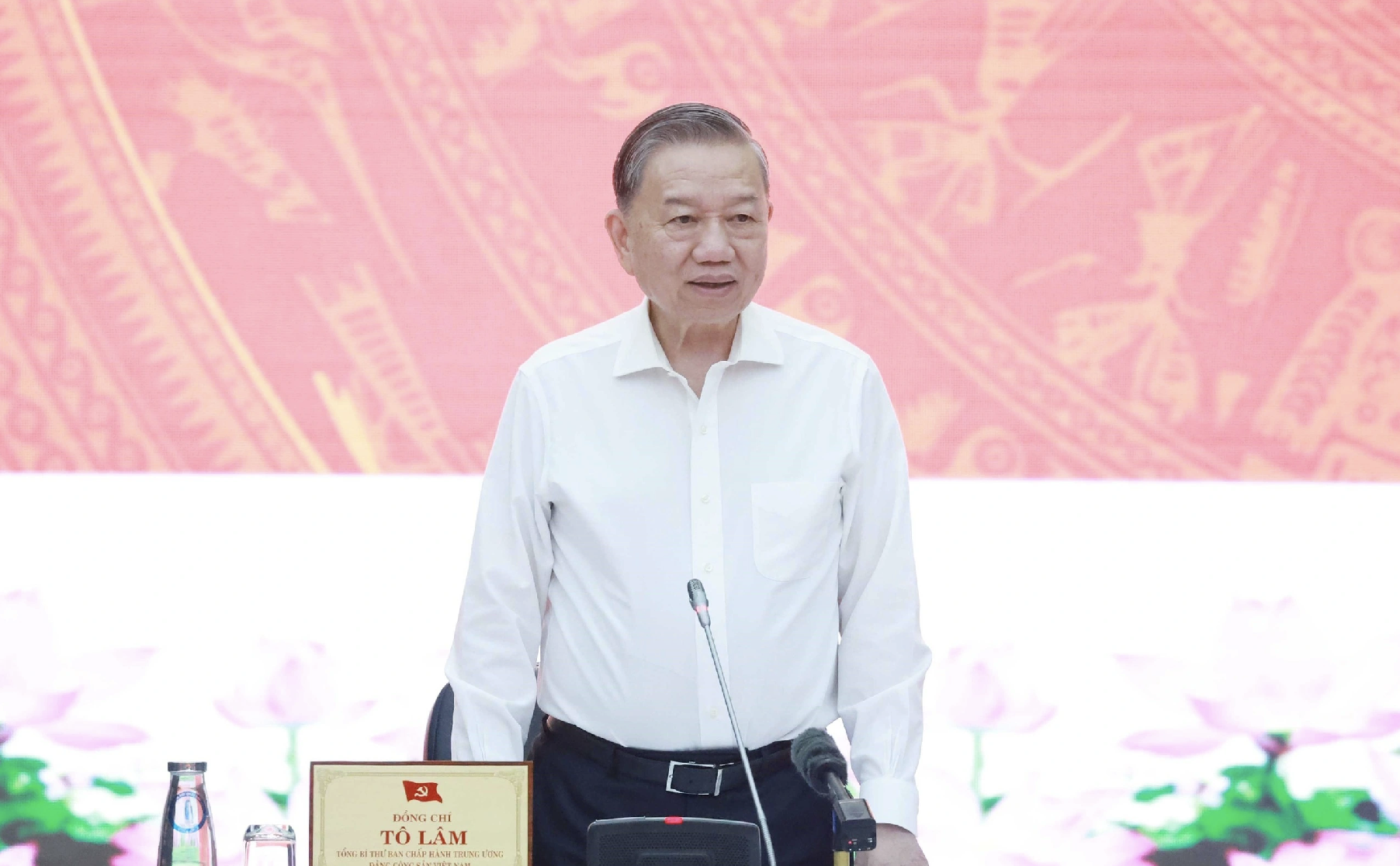

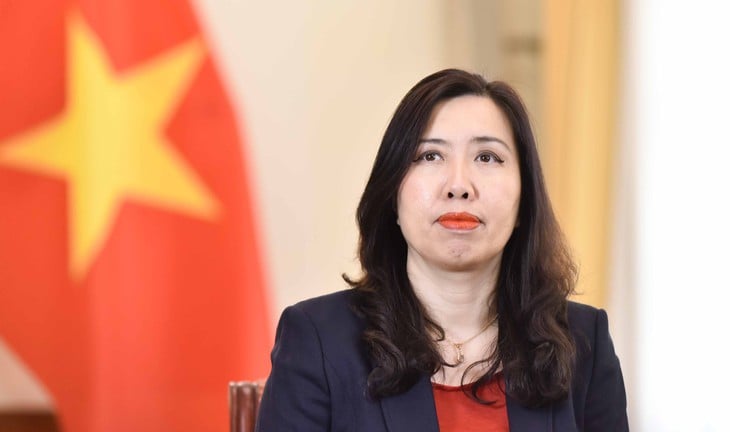

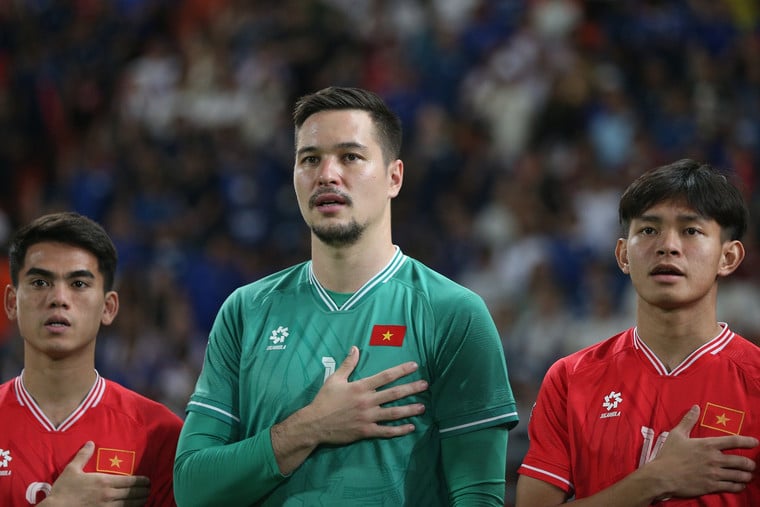

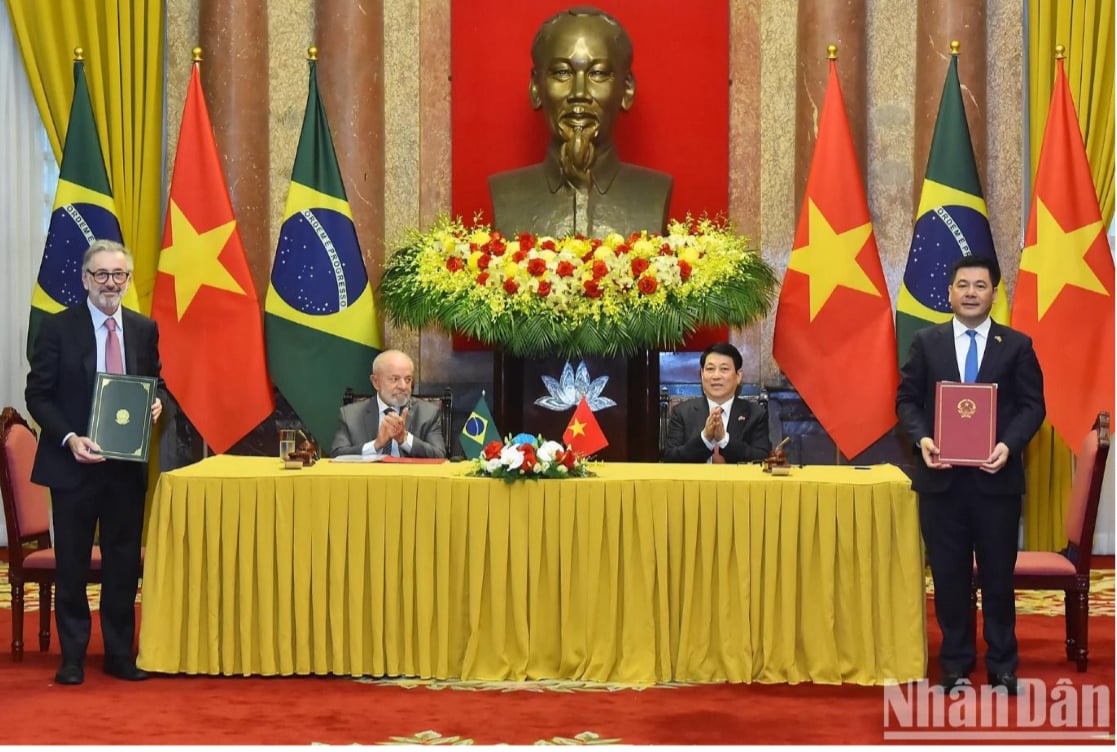

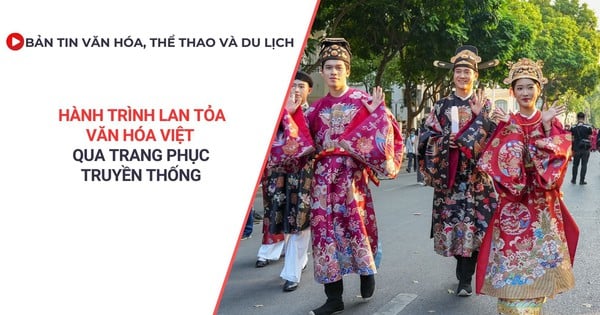

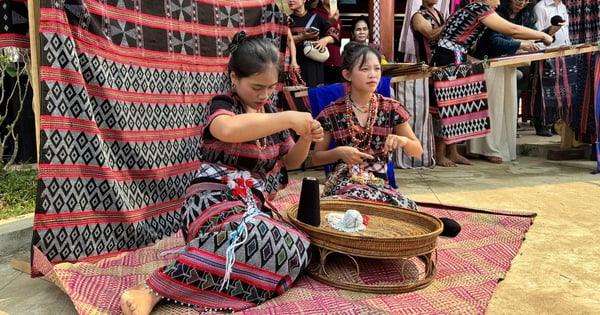
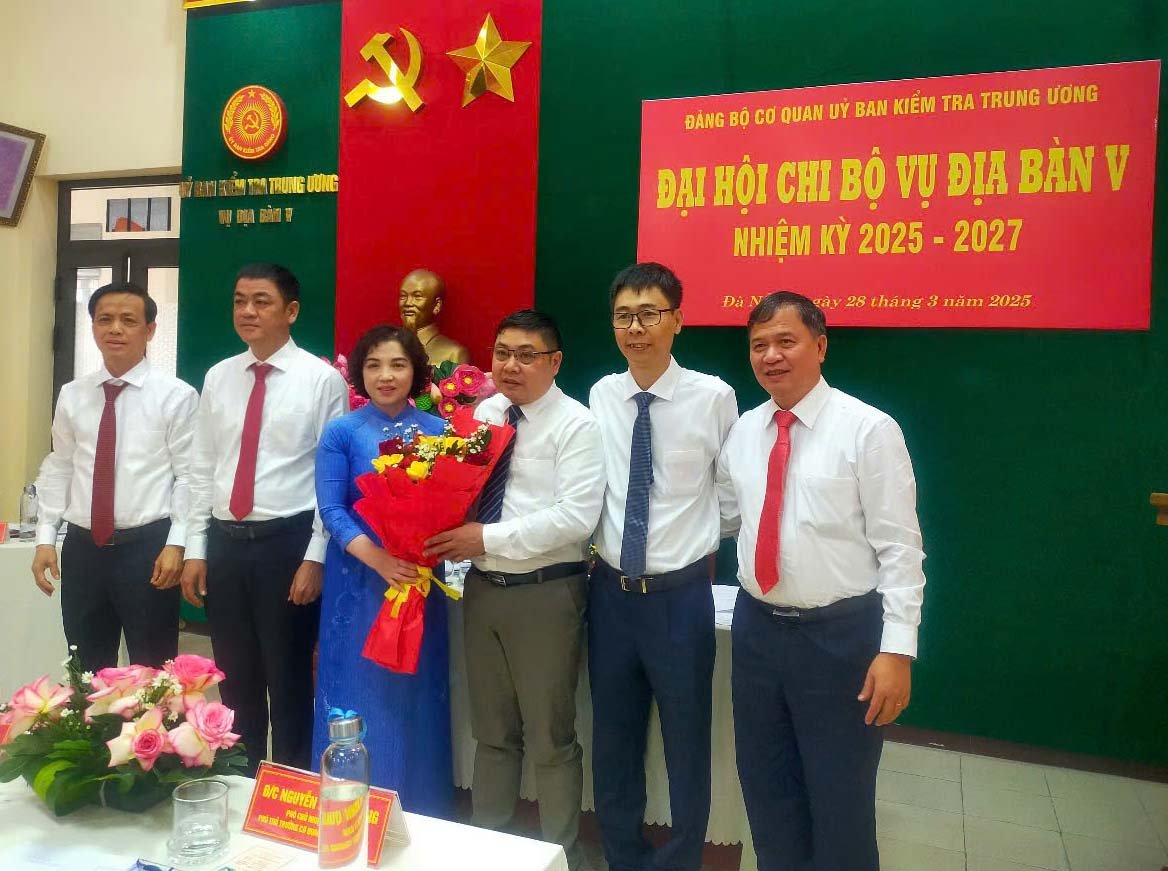

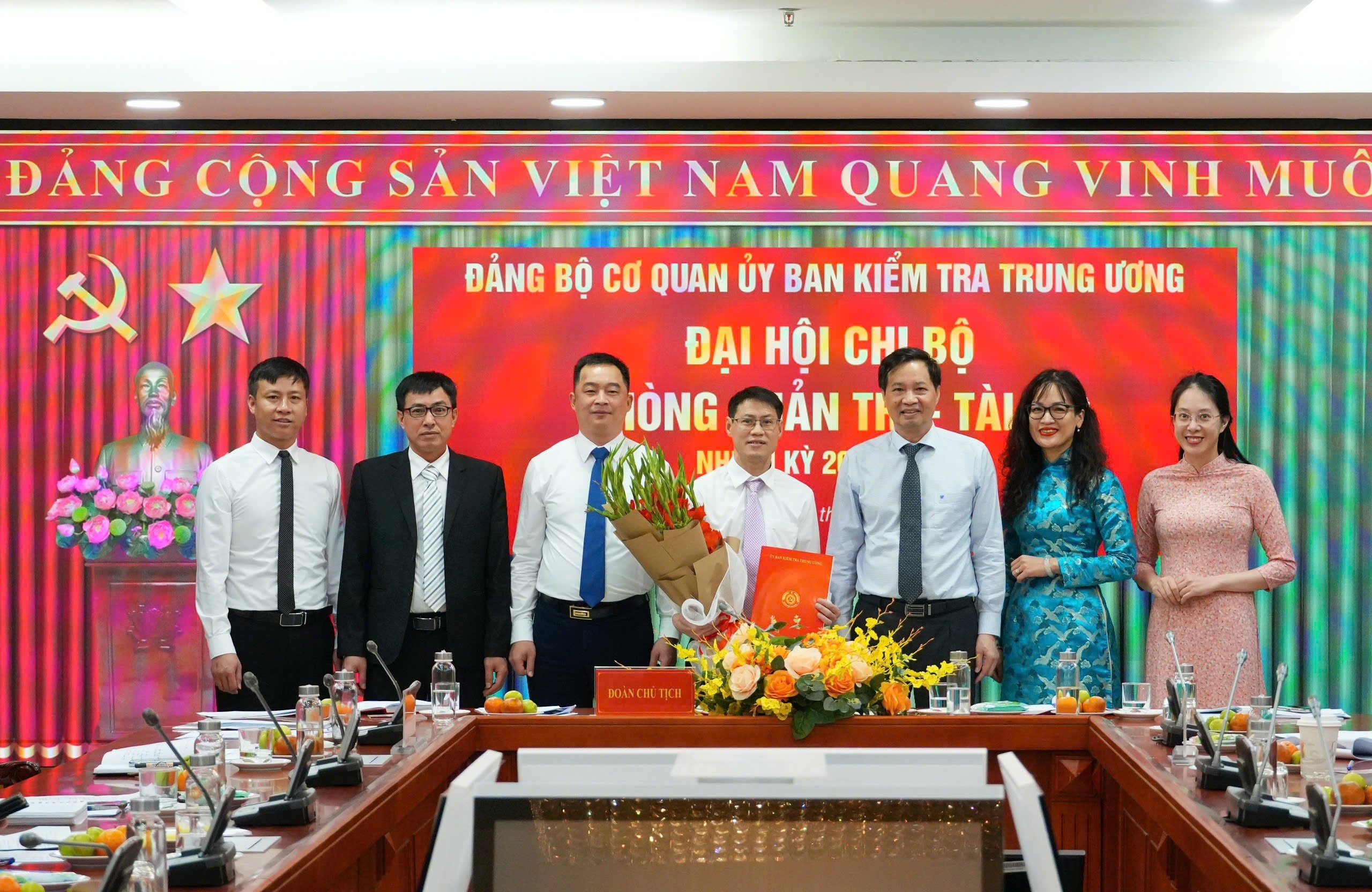
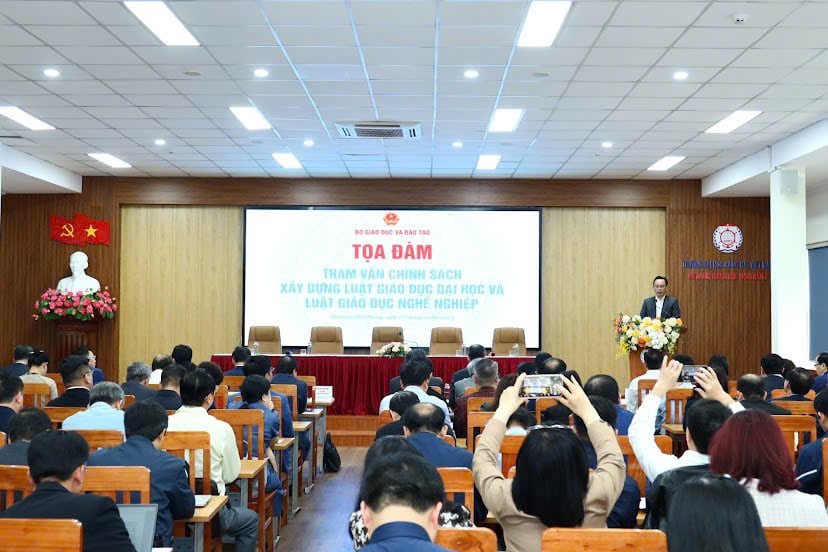




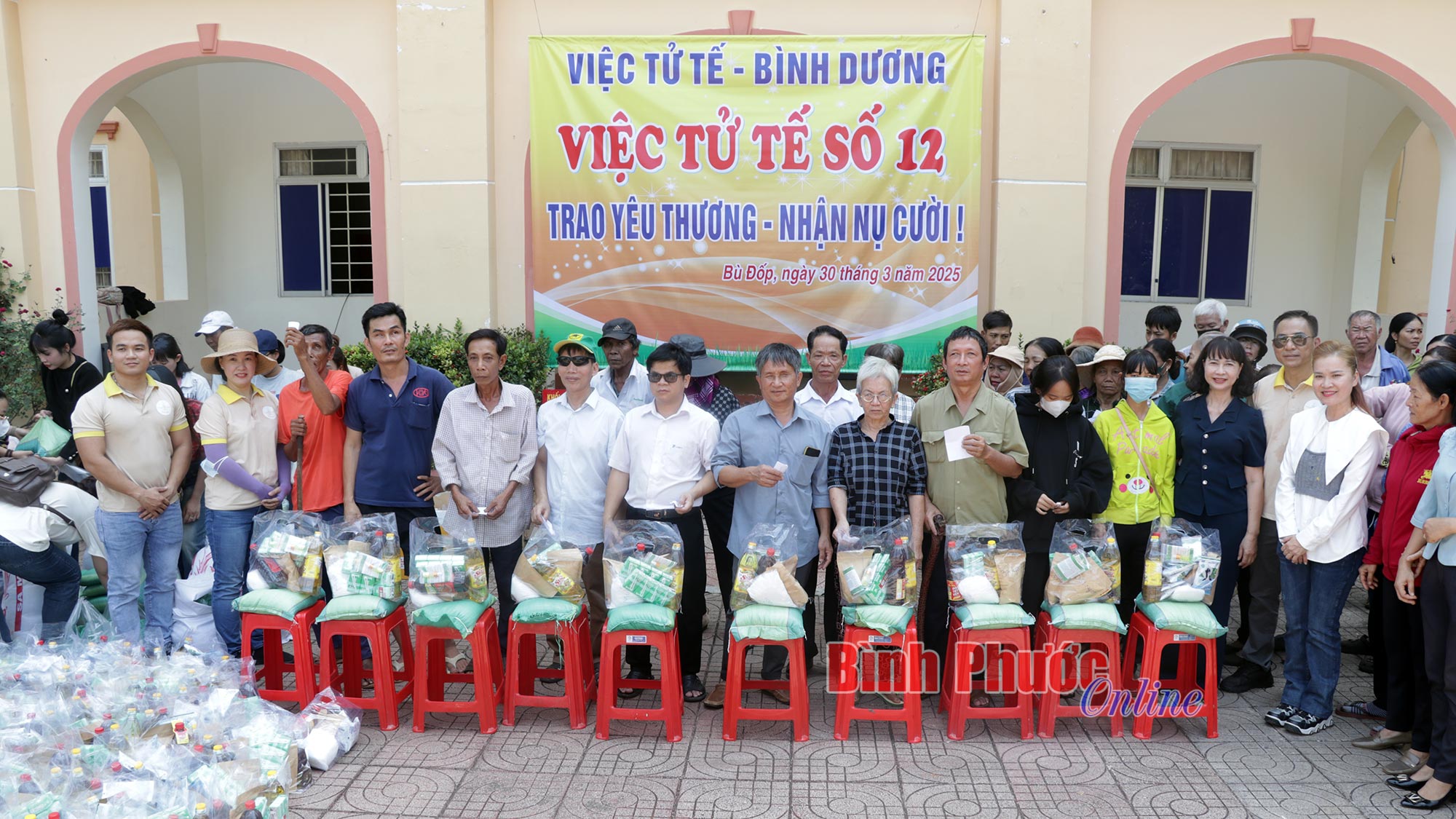

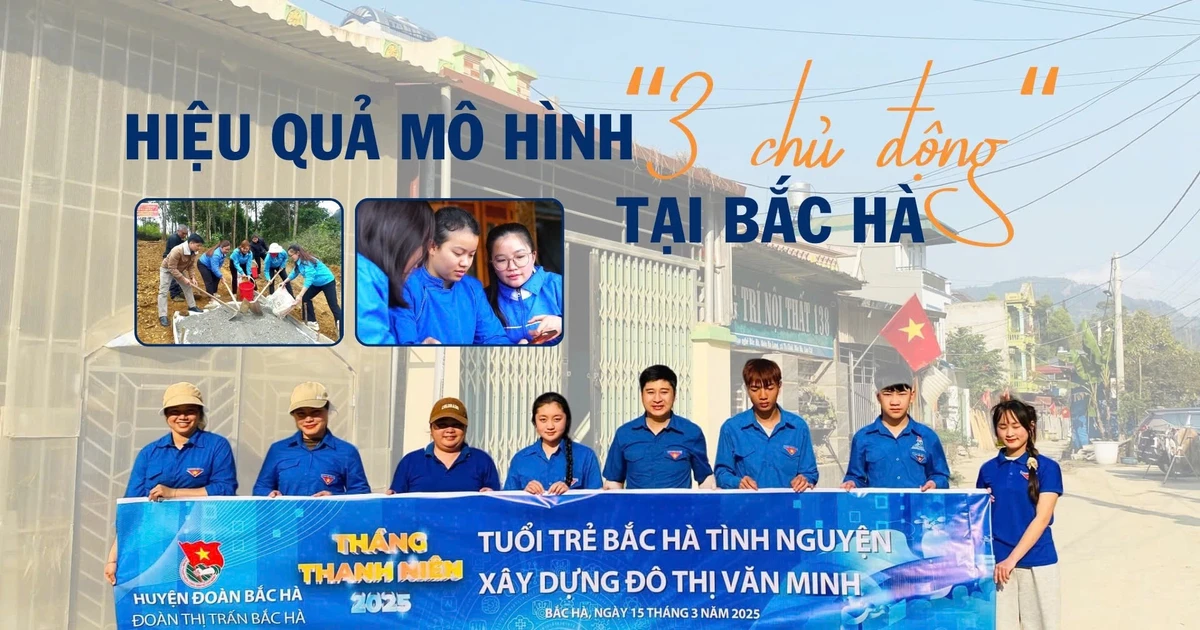



![[REVIEW OCOP] An Lanh Huong Vet Yen Cat](https://vstatic.vietnam.vn/vietnam/resource/IMAGE/2025/3/27/c25032328e9a47be9991d5be7c0cad8c)







Comment (0)